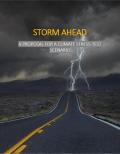This report seeks to explore options around integrating transition risk into mainstream stress-test scenarios used by financial supervisory authorities. It analyses options for integration into macroeconomic, asset-class and sector risk factors.

This report provides guidelines to build an adverse climate scenario that can be used by financial supervisors as inputs into either traditional or climate-specific stress-tests of regulated entities. The report has been designed to cover the key metrics and indicators found in traditional stress-tests, integrating both risks associated with the transition to a low-carbon economy as well as physical risks in a +4°C / +6°C world. The report provides both insights into key indicators needed in the context of climate stress-tests or scenario analysis, the values they would take in the context of transition risk and physical risk analysis based on the existing literature, options for modelling these indicators moving forward, and example applications developed by the 2° Investing Initiative.
This report examines the potential for increased coherence in approaches to climate change adaptation and disaster risk reduction across levels of government and sectors.
This short report gauges ACCA members and other stakeholders’ views of the impact of the crisis so far and the measures being undertaken to mitigate the impact of COVID-19, exploring and sharing the early lessons that have been learned.
The report analyses relevant provisions of the MiFID II Directive including related secondary regulation and guidelines. The aim is to understand the existing regulatory framework and the extent to which there is scope to include the discussion of non-financial investment objectives in financial advice from a regulatory perspective.
